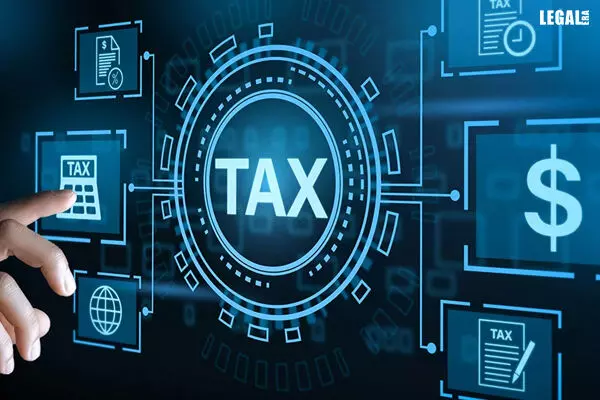- Home
- News
- Articles+
- Aerospace
- AI
- Agriculture
- Alternate Dispute Resolution
- Arbitration & Mediation
- Banking and Finance
- Bankruptcy
- Book Review
- Bribery & Corruption
- Commercial Litigation
- Competition Law
- Conference Reports
- Consumer Products
- Contract
- Corporate Governance
- Corporate Law
- Covid-19
- Cryptocurrency
- Cybersecurity
- Data Protection
- Defence
- Digital Economy
- E-commerce
- Employment Law
- Energy and Natural Resources
- Entertainment and Sports Law
- Environmental Law
- ESG
- FDI
- Food and Beverage
- Gaming
- Health Care
- IBC Diaries
- In Focus
- Inclusion & Diversity
- Insurance Law
- Intellectual Property
- International Law
- IP & Tech Era
- Know the Law
- Labour Laws
- Law & Policy and Regulation
- Litigation
- Litigation Funding
- Manufacturing
- Mergers & Acquisitions
- NFTs
- Privacy
- Private Equity
- Project Finance
- Real Estate
- Risk and Compliance
- Student Corner
- Take On Board
- Tax
- Technology Media and Telecom
- Tributes
- Viewpoint
- Zoom In
- Law Firms
- In-House
- Rankings
- E-Magazine
- Legal Era TV
- Events
- News
- Articles
- Aerospace
- AI
- Agriculture
- Alternate Dispute Resolution
- Arbitration & Mediation
- Banking and Finance
- Bankruptcy
- Book Review
- Bribery & Corruption
- Commercial Litigation
- Competition Law
- Conference Reports
- Consumer Products
- Contract
- Corporate Governance
- Corporate Law
- Covid-19
- Cryptocurrency
- Cybersecurity
- Data Protection
- Defence
- Digital Economy
- E-commerce
- Employment Law
- Energy and Natural Resources
- Entertainment and Sports Law
- Environmental Law
- ESG
- FDI
- Food and Beverage
- Gaming
- Health Care
- IBC Diaries
- In Focus
- Inclusion & Diversity
- Insurance Law
- Intellectual Property
- International Law
- IP & Tech Era
- Know the Law
- Labour Laws
- Law & Policy and Regulation
- Litigation
- Litigation Funding
- Manufacturing
- Mergers & Acquisitions
- NFTs
- Privacy
- Private Equity
- Project Finance
- Real Estate
- Risk and Compliance
- Student Corner
- Take On Board
- Tax
- Technology Media and Telecom
- Tributes
- Viewpoint
- Zoom In
- Law Firms
- In-House
- Rankings
- E-Magazine
- Legal Era TV
- Events
Supreme Court Ruling Brings Relief To Companies, Rejects Maharashtra Government’s Tax Demands

Supreme Court Ruling Brings Relief To Companies, Rejects Maharashtra Government’s Tax Demands
In a significant relief to companies such as Voltas, Ramco Industries, Prism Cement and others the Supreme Court ruled on Wednesday that the Maharashtra government does not have the authority to revise assessments or demand a refund of exempted tax from companies for failing to submit Form 'C' and 'D' to support their inter-state sales.
The Court clarified that the requirement for submitting these forms would only apply prospectively, starting from May 11, 2002, when amendments were made to the Central Sales Tax Act, 1956.
The case centered on whether the amendment to Section 8(5) of the 1956 Act by the Finance Act of 2002 would strip the right of the assessee to claim exemptions granted under Eligibility/Entitlement certificates, which had been issued without the condition of submitting Form 'C' and 'D'. The key issue was whether such restrictions would apply retroactively to transactions conducted before the amendment came into effect.
Dismissing appeals from the Maharashtra government, a bench led by Justice PS Narsimha ruled that the state government lacked the authority to issue notices revising the assessment of Prism Cement and demand the refund of exempted tax for the 2002-2003 to 2004-2005 assessment years solely because the company failed to submit the required forms.
The Court emphasized that Prism Cement had been granted sales tax benefits under the 1993 Package Scheme of Incentives aimed at promoting industrial development in backward areas. The eligibility and entitlement certificates issued in 1998 had no condition requiring the submission of Forms 'C' and 'D', and the exemption benefits were to continue until 2012 or up to a specified limit of Rs 273.54 crores.
Ruling in favor of the companies, the apex court held that after the amendment, the state government could not pass unilateral orders altering the rights of the assessee to claim an exemption from tax. The exemption had been granted well before the Finance Act, 2002 came into effect on May 11, 2002, and any conditions tied to the exemption were only applicable to transactions occurring after the amendment.
The judgment makes clear that the submission of Form 'C' and 'D' would be required only for transactions linked to eligibility and entitlement certificates issued after the 2002 amendment.


